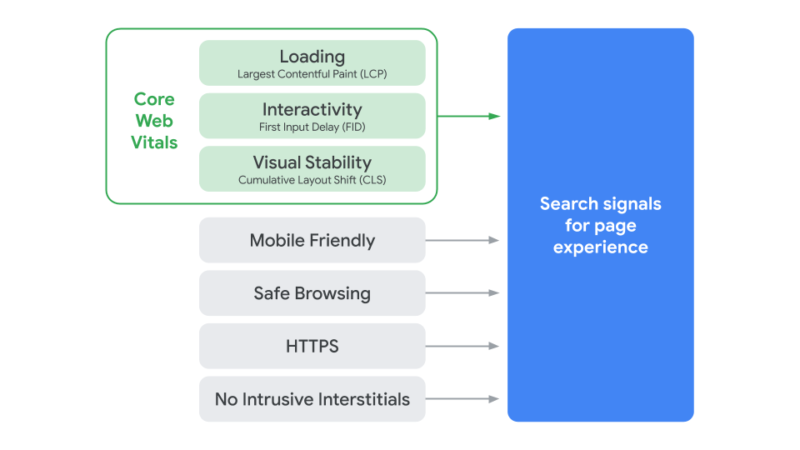Google announced that it is postponing the rollout of the page experience update, specifically the ranking change, from May 2021 to be a gradual rollout that won’t start until mid-June 2021 and won’t be fully rolled out until the end of August.
Google is pushing off the rollout timeline for this update to “help you continue to make refinements to your website with page experience in mind,” the company said. Truth is, I suspect most site owners who cared about making changes for the page experience update were already on schedule to make those changes by the end of this month.
The rollout. The ranking change for the page experience update will begin in mid-June and will be a “gradual” rollout, Google told Search Engine Land. The rollout will be complete several weeks later by the end of August. The delay means Google “will be able to monitor for any unexpected or unintended issues.”
What goes live today. Whie the page experience update ranking change does NOT go live today, Google is releasing a few updates including the following:
- The Page Experience report in Google Search Console
- General availability for signed exchanges for all webpages (more below)
Mid-June rollout. So what is rolling out in mid-June with the page experience update?
- The ranking change will begin gradually rolling out.
- AMP badge will begin to go away
- Possible page experience badge will continue to be tested but Google has not finalized plans for this badge.
- Top Stories carousel feature on Google Search will be updated to include all news content, as long as it meets the Google News content policies and guidelines. AMP is no longer required here to rank in certain top stories. Google also clarified that this is “irrespective of its Core Web Vitals score or page experience status.” This change will begin in mid-June as well and finish by the end of August.
- AMP also not required for the Google News app nor news.google.com.
- I suspect HTTPS, mobile-friendly, safe browsing and no intrusive interstitials will be part of the mid-June rollout, as Google already has these are ranking signals prior to the page experience announcement.
End of August rollout. Google said it will finish and complete the full rollout of the page experience update ranking change by the end of August. This will include all the core web vital metrics, such as LCP, FID, and CLS (as well as Chrome’s recent fix to CLS), as well as the ones listed below.
Reminder, this is what is in the new page experience update includes and this will begin rolling out in mid-June and complete rolling out by the end of August. It will not be live in May 2021 as previously announced.

The removal of the AMP requirement for the top stories carousel will also be fully ended by this timeframe.
Don’t expect drastic changes. Google said with this rollout and this new Google update, do not expect drastic changes. “While this update is designed to highlight pages that offer great user experiences, page experience remains one of many factors our systems take into account… Given this, sites generally should not expect drastic changes,” said Google.
FAQs. Google posted very detailed FAQs around the core web vital and page experience update in its help forums. I recommend you review those again after reading this.
More reports. Google also is releasing a new Page Experience report in Google Search Console. The report will combine the existing core web vitals report with other components of the page experience signals. Google also updated Search Performance report to allow you to filter pages with good page experience. We covered these reports in more detail here.
Signed exchanges rollout. Another note in this announcement is that signed exchanges on Google Search is rolling out for all web pages. Signed exchanges help solve part of the problem publishers had with AMP and serving your content over Google’s AMP Cache URL. Google said SXG (signed exchanges) “allow Google Search to leverage the privacy-preserving prefetching technique in compatible browsers, which can lead to improved page experience. This technique enables Google Search to load key resources of a page (HTML, JavaScript, CSS) ahead of navigation, which makes it possible for the browser to display pages faster.”
To be clear, “the use of SXG is not a requirement for page experience benefits, and you can consider the technology as one of the options for improving your page experience,” said Google.
Why we care. We all have a bit more time to prepare for this upcoming page experience update. We will see the top stories carousel and Google News specific changes rollout first. Plus, we can use the additional reporting in Search Console to help improve our pages with the page experience update.

